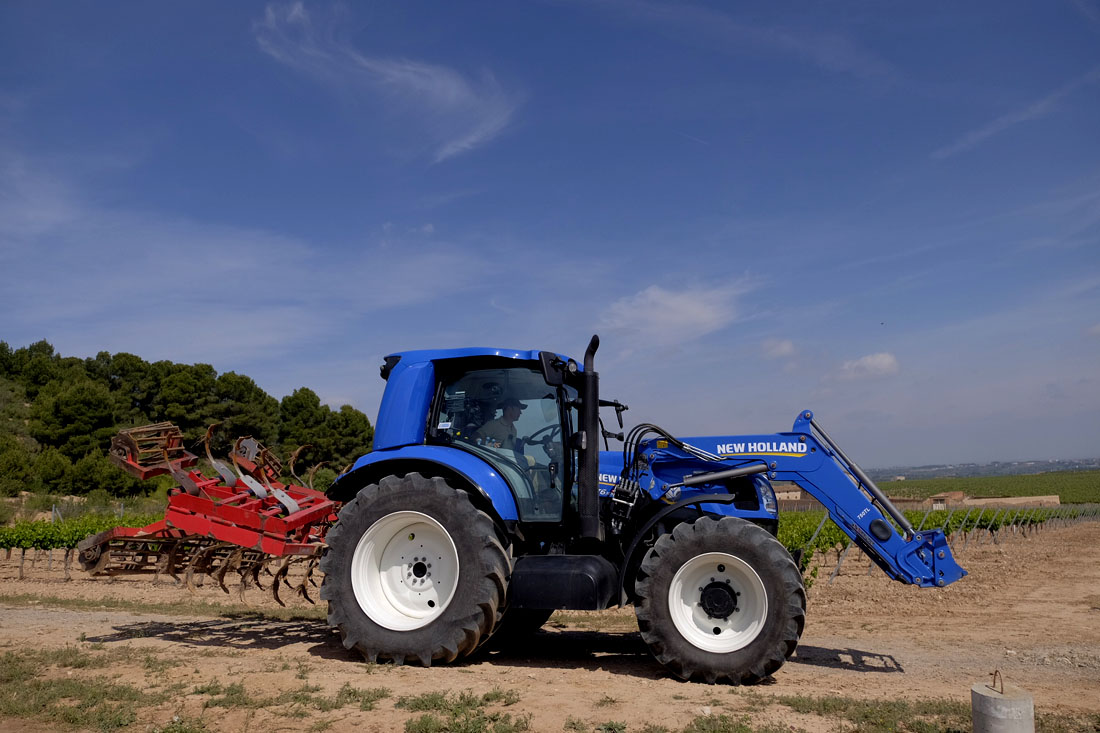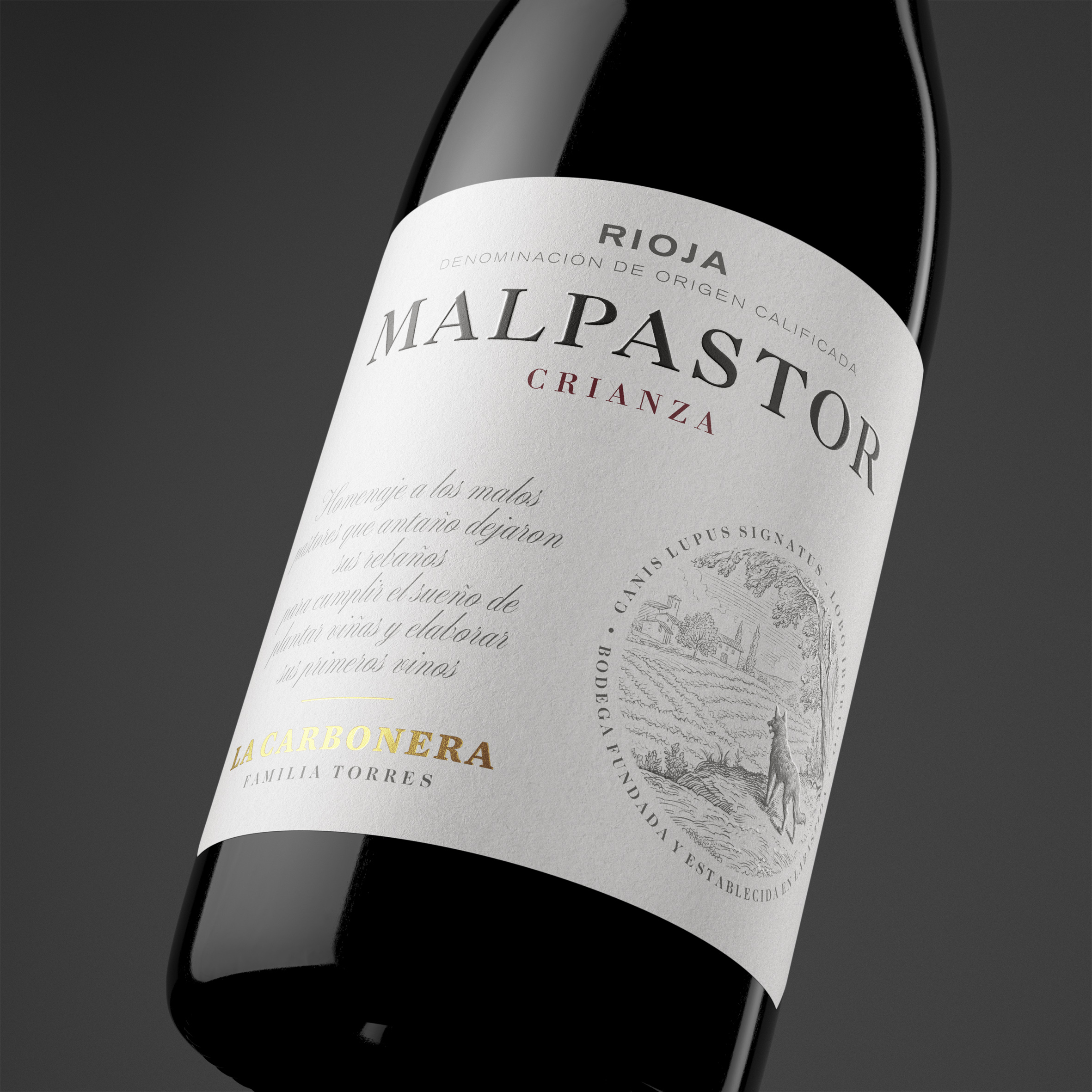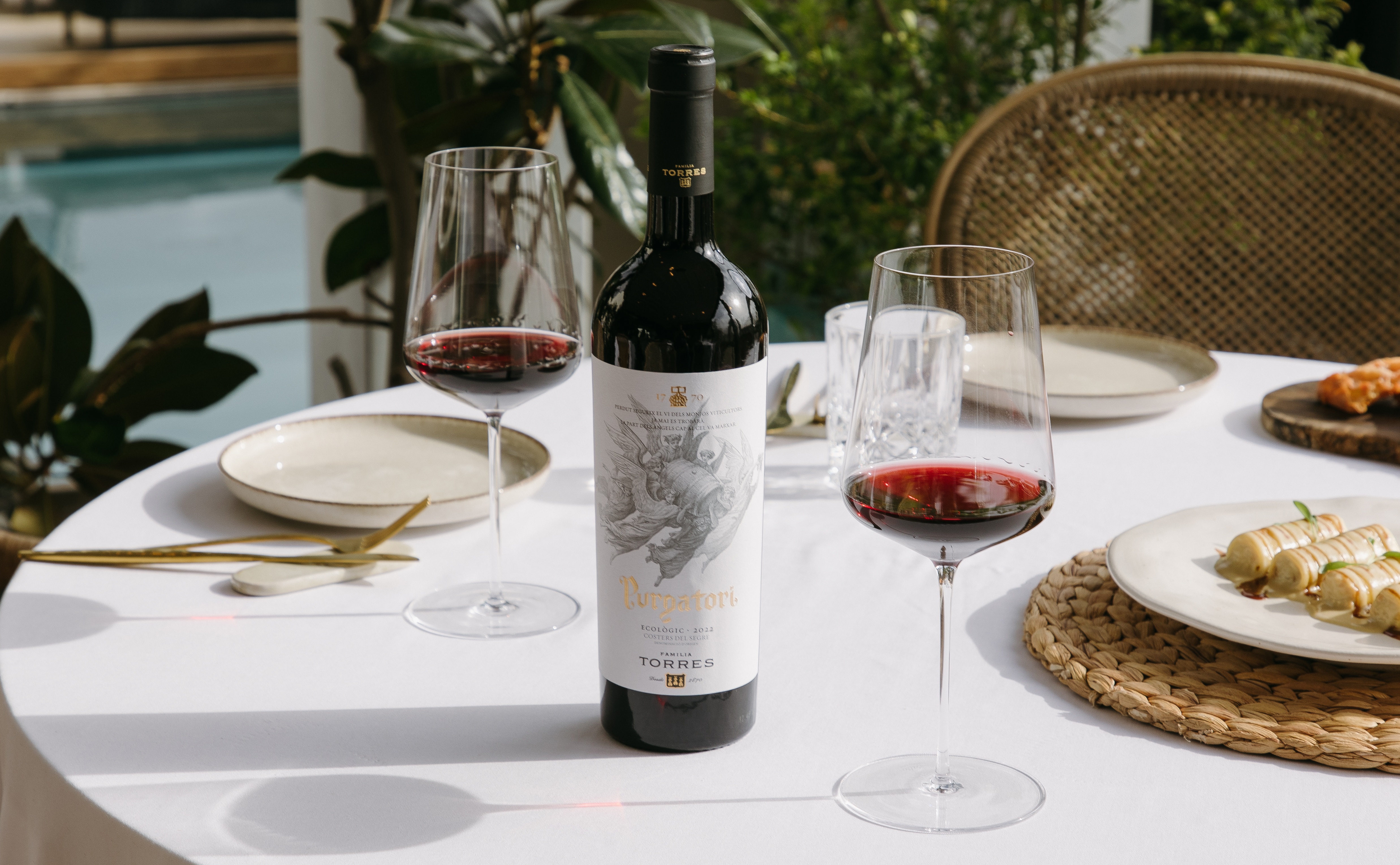The prototype reduces carbon emissions by 80% and paves the way for energy independence through biomethane use
Bodegas Torres and New Holland, a leading manufacturer of agricultural machinery based in Turin, have signed a collaboration agreement to conduct the first field test in Spain of the methane tractor prototype. This groundbreaking initiative reflects the environmental commitment of both companies to explore renewable energy sources that reduce CO2 emissions. It also expresses their shared vision of the future of farming, one built on sustainability and energy independence.
During the month of May, Bodegas Torres is conducting tests at its L'Aranyó estate to assess New Holland's second-generation T6 Methane Power prototype. Located in Les Garrigues in the province of Lleida, the estate comprises 175 hectares of vineyards and 80 hectares of hundred-year-old olive groves.
The subject of the field tests is a standard tractor with a 6-cylinder engine and 175 CV (129 kW or 173hp) of power, which runs on methane or biomethane gas stored in 9 tanks. A total capacity of 300 liters of compressed methane – equivalent to about 60 liters of diesel – gives the tractor approximately half a day of autonomy during normal operation. Equipped with three catalysts, the tractor complies with Tier 4B emissions regulations without requiring any additional post-treatment systems.
The methane tractor's carbon impact is practically zero – its carbon emissions are 80% lower than those of a standard diesel tractor – and it can deliver fuel cost savings of 20% to 40%. Carbon emissions can be further reduced by using biomethane. This refers to methane derived from biomass, which farmers can produce on the very farm where the tractor is being used.
Sustainable agriculture through self-generated power
According to New Holland, a methane-powered tractor offers important environmental advantages compared with a conventional one, such as low emissions and fuel cost savings. It also has advantages in terms of comfort, because it is quieter and vibrates less than a diesel tractor. One of the most notable advantages, however, is clearly the energy independence it offers farmers through the use of biomethane.
“Generating alternative energy sources is essential to New Holland's concept of Energy Independent Farming, which is being practiced on an experimental basis in La Bellotta, Italy. The goal is for the farm to self-generate the energy for its operations and agricultural machinery from its own crops, thus reducing its environmental impact. The methane tractor makes this possible,” states Ramón Maya, New Holland's marketing director for Spain and Portugal.
For Bodegas Torres using methane to fuel its vineyard operations would be a way of bringing the production process full circle. It would also reduce CO2 emissions, the winery's primary concern in terms of minimizing the impact of climate change. “We could generate biogas through the anaerobic digestion of agricultural residues from the vineyard and by-products of our wine and brandy production. By doing so, we would not only stop emitting gases into the atmosphere, but we would also use them as fuel to carry out our work in the vineyard,” says Xavier Sort, head of production at Bodegas Torres.
The use of alternative energy is a cornerstone of Bodegas Torres's environmental program Torres & Earth, initiated in 2008 with the goal of reducing CO2 emissions per bottle by 30% by 2020. This involves, among other things, the use of biomass to generate gas and electricity, and the installation of solar panels at the winery's main facilities and some of its vineyards, including L'Aranyó. The actions taken so far represent an investment of over 11 million euros and have cut across-the-board carbon emissions, from the vineyard to final transport, by 13% according to the latest assessment by Lloyd's.
New Holland has worked on innovative initiatives in sustainable agriculture since 2006 as part of its Clean Energy Leader strategy. The company has continued to develop its Methane Power tractor after exhibiting the first prototype at the EXPO 2015 in Milan. So far the second-generation prototype has been used on an experimental basis at the company's Energy Independent Farm outside Turin, Italy, which is now being joined by Bodegas Torres's vineyards in Lleida.



